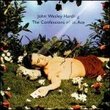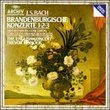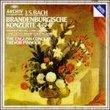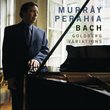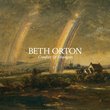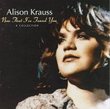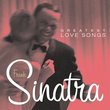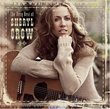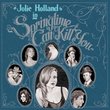| All Artists: Giacomo Puccini, Victor De Sabata, Orchestra del Teatro alla Scala, Maria Callas, Giuseppe di Stefano, Tito Gobbi, Dario Caselli, Franco Calabrese, Alvaro Cordova, Angelo Mercuriali Title: Puccini: Tosca Members Wishing: 0 Total Copies: 1 Label: EMI Classics Original Release Date: 1/1/2000 Re-Release Date: 12/2/2003 Album Type: Original recording remastered Genre: Classical Styles: Opera & Classical Vocal, Historical Periods, Modern, 20th, & 21st Century Number of Discs: 2 SwapaCD Credits: 2 UPC: 724358564426 |
Search - Giacomo Puccini, Victor De Sabata, Orchestra del Teatro alla Scala :: Puccini: Tosca
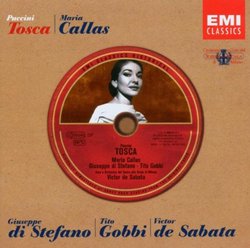 | Giacomo Puccini, Victor De Sabata, Orchestra del Teatro alla Scala Puccini: Tosca Genre: Classical
Little can be added to what's been written about this landmark recording, except that Walter Legge's 1953 mono production yields nothing to modern Tosca recordings for vivacity and theatrical impact--especially Maria Calla... more » ![header=[] body=[This CD is available to be requested as disc only.]](/images/attributes/disc.png?v=a4e11020) ![header=[] body=[This CD is available to be requested with the disc and back insert.]](/images/attributes/disc_back.png?v=a4e11020) ![header=[] body=[This CD is available to be requested with the disc and front insert.]](/images/attributes/disc_front.png?v=a4e11020) ![header=[] body=[This CD is available to be requested with the disc, front and back inserts.]](/images/attributes/disc_front_back.png?v=a4e11020) |
Larger Image |
CD DetailsSynopsis
Amazon.com Little can be added to what's been written about this landmark recording, except that Walter Legge's 1953 mono production yields nothing to modern Tosca recordings for vivacity and theatrical impact--especially Maria Callas's. The miraculous Victor de Sabata conjures up a vibrant, inspiring orchestral canvas that enables Callas and her stellar cohorts to work their magic. Tito Gobbi and Callas spur each other on to heights in which the characters take over from the singers in the listener's mind. Giuseppe Di Stefano is on his best behavior, and in fresher voice than on his fine Leontyne Price-Herbert von Karajan remake. On this set, EMI includes texts, translations, and notes that discuss this recording in the context of Callas's mercurial career. --Jed Distler Similarly Requested CDs
|
CD ReviewsWow Wow Wow Wow Wow!!!! PennsylvaniaMartha | 03/15/2004 (5 out of 5 stars) "This is my first Callas recording. I was curious about her, of course, but I was always put off by descriptions of more or less horrendous audio problems on the famous recordings. Used to modern recordings, I didn't know how I'd react to such bad sound, so I put off trying.No more! This is a new (12/03) EMI Remaster of the famous de Sabata "Tosca" -- yes, THE definitive "Tosca" starring Callas, Di Stefano, and Gobbi. And I can tell you it sounds WONDERFUL! Why is this set so affordable, then? I have no idea! There is no libretto included, only a slim booklet with a track list, a short synopsis of the action for each track, and one article about the opera and this performance. There is no cardboard case, and only a simple 2-part jewelcase, not the hefty one often provided with opera CD sets.But it's enough!! It's more than enough! I'd buy these disks if they were sold loose in a paper bag. I am totally, permanently won over. This performance is simply electrifying! The music leaps out of the speakers and grabs you. Callas as Tosca had me in tears! Scarpia scared me! It's too good to believe it happened several decades ago.All I can say is, Buy this now before they realize what a gem this is and raise the price! You won't regret it." Outstanding De Sabata! Most famous and controversial Tosca! Armindo | Greece | 08/07/2004 (5 out of 5 stars) " This is one of the few recordings in which the conductor attracted my attention more than the singers. This is not to dismiss the singers but De Sabata's conducting makes this the most idiomatic Tosca recording I've ever heard. All three protagonists are heard here in their short-lived prime. Callas in firm voice is a capricious, nervous and furious Tosca. Many accuse her of overacting but here she controls herself and most outbreaks sound sincere. You won't hear the grandness, dignity and beauty of Tebaldi's Tosca but Callas' Tosca is a unique creation. No need to argue which one is better, they both are legendary and besides, tastes differ. Di Stefano is all ardour and tenderness in this most beloved tenor role. I can already hear the manners that eventually ruined his instrument but he nevertheless is a memorable Mario. Gobbi's Scarpia frightens Tosca not because of what he is but because of what he can do. Gobbi doesn't have the huge voice that made Bastianini or London so scary but he uses his to great effect and creates a sinister Baron Scarpia. Luise's Sagristano is most convincing. One of the greatest virtues of this old Tosca recording is its vitality and chemistry between the performers. No wonder that since its release it's impossible to make and accurate historical evaluation of Puccini's Tosca without taking it into account. Finally released at budget price! " The Tosca of the century Emma de Soleil | On a holiday In Ibiza, then back to the UK for stu | 05/16/2004 (5 out of 5 stars) "This recording has been showered with accolades and praise by critics, operafans, reviewers etc. etc. And listening to it a whole world comes to life. In a time when Puccini's masterpieces are destroyed by arrogant "directors" this golden age recording is like a breath of fresh air. Callas is in her prime, sounding fresh, loving, passionate and fascinating. She became Tosca, all her jealousies, passions, moods, fears are so real, so sublime and natural that you'll forget that you're listening to a recording. She cleared Tosca of those veristic, fish-wife tears after "Egli ved ch'io piango!" and her tears and agony are heard through her voice alone. Listen to Tosca's ardent "A come la sai bene l'arte di farti amare!" ... She sounds so gorgeous, so lucid and passionate, it'll warm your heart. Then there is act II with the never equalled clash between Tosca and the evil Scarpia sung and acted to perfection by Callas (Whose high Cs will chill you!) and Gobbi. (The only Scarpia) Listen to Callas' tearful, beautiful "Vissi d'arte" sung with exquisite legato, velvety warmth and most tearful colours. Pleading "Why, oh lord dost thou repay me thus?" she will break your heart! The chilling murder of Scarpia with Callas/Tosca ROARING "M'ai assai TORTURATO!!!!!" is too thrilling to describe. And the final duet sung with di Stefano and Tosca's suicide are portrayed hauntingly. Di Stefano, her favourite partner and part of the greatest operatic trio of the century (Callas, di Stefano, Gobbi) sounds sunny, charming and passionate. In short: It's the best Tosca ever recorded."
|

 Track Listings (16) - Disc #1
Track Listings (16) - Disc #1